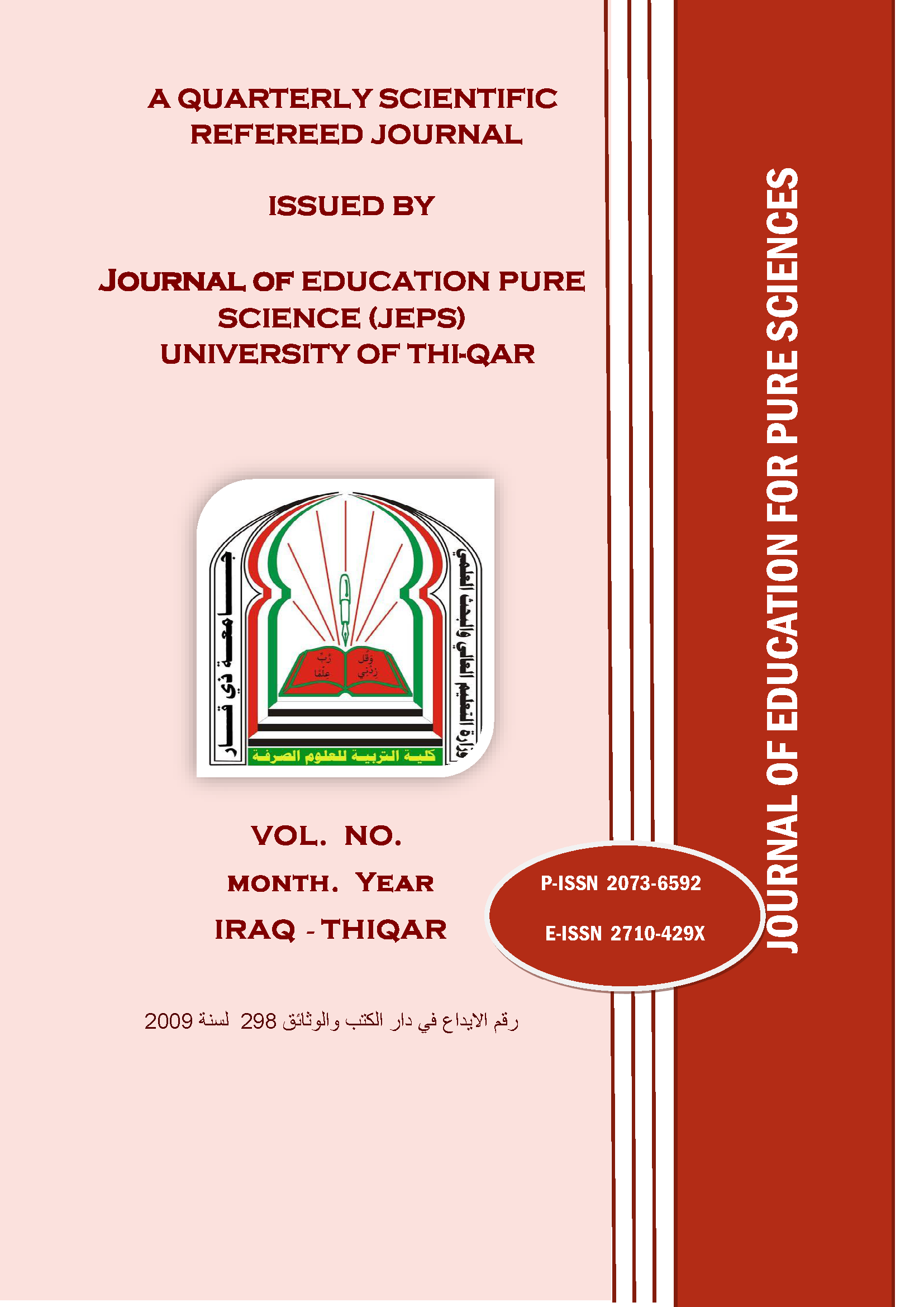Data mining in academic libraries using the K-means algorithm
DOI:
https://doi.org/10.32792/jeps.v12i1.151Keywords:
Data Mining,, Cluster,, K- means algorithmAbstract
Data mining is an complex process that extracts the required, useful, and comprehensive data from the
large quantity of data in order to achieve predetermined goals; some consider data mining to be a
common term in the field of extracting knowledge, while others consider data mining to be one of the
first steps in the process of extracting knowledge. And the clustering is the method of separating a data
set into distinct cluster groups, each with comparable characteristics, with the goal of combining the data
into a single cluster. We are attempting to discuss the possibilities provided by the data mining procedure,
and well as how it might improve the standard of service in universities libraries, in this study. Where this
article goals to set the books information that is contained in any library, for example, a library College of
Education for Pure Science in the University of Thi Qar, by using the K-means clustering approach.
Name, Title Of the book, and Author are used as input variables in this K-means clustering method. The
result is divided into three groups: (B1) the most commonly borrowed book, (B2) often borrowed book,
and (B3) rarely borrowed book. The final result achieved using this K-means Clustering approach
includes members of cluster 1 containing (19) members, cluster 2 containing (22) members, and cluster 3
containing (19) members. The library can use the information from grouping this books data. In the case
of selecting books to be introduced to the library, it is important to reduce the number of books that are
seldom borrowed for the purpose of avoid a backlog of books that are seldom borrowed, leaving room for
new books to also be added.
References
Siguenza-Guzman, Lorena, et al. "Literature review of data mining applications in academic
libraries." The Journal of Academic Librarianship 41.4 (2015): 499-510.
Huancheng, Liu, Wu Tingting, and Álvaro Rocha. "An analysis of research trends on data mining in
Chinese academic libraries." Journal of Grid Computing 17.3 (2019): 591-601.
Sinaga, Kristina P., and Miin-Shen Yang. "Unsupervised K-means clustering algorithm." IEEE
Access 8 (2020): 80716-80727.
Haraty, Ramzi A., Mohamad Dimishkieh, and Mehedi Masud. "An enhanced k-means clustering
algorithm for pattern discovery in healthcare data." International Journal of distributed sensor
networks 11.6 (2015): 615740.
Li, Youguo, and Haiyan Wu. "A clustering method based on K-means algorithm." Physics
Procedia 25 (2012): 1104-1109.
Krishna, K., and M. Narasimha Murty. "Genetic K-means algorithm." IEEE Transactions on Systems,
Man, and Cybernetics, Part B (Cybernetics) 29.3 (1999): 433-439.
Sheshasayee, Ananthi, and P. Sharmila. "Comparative study of fuzzy C means and K means algorithm
Downloads
Published
Issue
Section
License
The Authors understand that, the copyright of the articles shall be assigned to Journal of education for Pure Science (JEPS), University of Thi-Qar as publisher of the journal.
Copyright encompasses exclusive rights to reproduce and deliver the article in all form and media, including reprints, photographs, microfilms and any other similar reproductions, as well as translations. The reproduction of any part of this journal, its storage in databases and its transmission by any form or media, such as electronic, electrostatic and mechanical copies, photocopies, recordings, magnetic media, etc. , will be allowed only with a written permission from Journal of education for Pure Science (JEPS), University of Thi-Qar.
Journal of education for Pure Science (JEPS), University of Thi-Qar, the Editors and the Advisory International Editorial Board make every effort to ensure that no wrong or misleading data, opinions or statements be published in the journal. In any way, the contents of the articles and advertisements published in the Journal of education for Pure Science (JEPS), University of Thi-Qar are sole and exclusive responsibility of their respective authors and advertisers.




